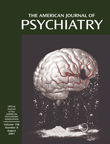Will psychiatrists want to read or own this book? Patients with concerns about failing memory or with obviously failing memory as well as a variety of symptoms involving memory are quite common in clinical psychiatric practice. Given an aging population and the advances in diagnostic technology and sophistication and their treatment implications, and in view of recent controversies including malpractice legal threats regarding repressed, recovered, and false memories, clinical psychiatrists should welcome a book to help them through these complex matters. Does this book, addressed to those in psychiatric practice, answer the need?
Published in England, with two editors, a neuropsychiatrist with a strong interest in history (German Berrios) and a behavioral neurologist (John Hodges), this book contains 23 chapters written by the editors and 30 other chapters, most but not all of which are written by British authors. As seems not uncommon in British books, the author list indicates neither discipline nor degree, information that would often offer a useful context. The book is in three sections, the first giving the historical and basic conceptual introduction to what is known about memory. Part 2 deals with memory defects; dementias, with their differential diagnosis and management, are covered in more detail than other conditions. The third part includes chapters on a variety of memory-related phenomena and disorders, including paramnesias and delusions of memory, déja vu, confabulation, malingering, dissociative amnesia, recovered and false memory, and the legal aspects of memory disorders.
Thus the book is quite encyclopedic in content. The references at the end of each chapter are extensive, often numbering in the hundreds. There is some dominance of British references, but the U.S. and international literatures are not neglected. In addition to earlier and historic references, there are many from the mid-1990s, but few after 1995. Given the writing and publication schedule of books, this is not surprising but does constitute a lack in a field where there is lively and important ongoing research with both diagnostic and treatment implications. Genetic research goes unmentioned. Anyone wanting to explore further the topics of a chapter would be well served by the references but would need to move on to computer literature searches.
Chapters vary in their appeal to clinicians. Some presuppose considerably more previous knowledge and sophistication than others, without sufficient attempt to bridge the information for the less informed reader. They are likely to be of more interest—although also better known—to researchers than to clinicians. The detailed historic antecedents of current views will interest only some. The book sets out to balance the neurobiological (i.e., neuropathological, physiological, biochemical, and pharmacological knowledge) with psychological understandings about memory disorders and complaints. It is more successful with the former than the latter. Psychodynamic theories, for instance about dissociative disorders, are little considered, while psychoanalytic understanding in the discussion of déja vu is mentioned in the same short paragraph with parapsychological interpretations.
And yet, this is a volume with many virtues. Although perhaps less important than content, the book’s format is more inviting than is true of many current publications. It is printed on good paper, there are wide margins, and the print is easy to read. Chapters have clear and descriptive subheadings and end with a summary or concluding paragraph that in many instances is worth reading as an initial orientation to the chapter. Many chapters also have unusually clear, detailed, and very useful tables. These include checklists for assessing cognitive function, causes of various disorders, detailed diagnostic criteria, factors to consider in differential diagnosis, and summaries of studies relevant to particular issues. One major annoyance, forming an unwelcome memory test for the reader, is the veritable alphabet soup of acronyms used throughout for diagnostic conditions, clinical tests, neurotransmitters, medications, etc., which are often pages removed from their definitions and do not appear in the index. Any future editions would be helped by an alphabetic glossary of these.
Some chapters will be particularly useful or interesting for practicing psychiatrists. These include, among others, the chapters on meta-memory (chapter 3), the dementias (chapter 7), and transient global amnesia and transient epileptic amnesia (chapter 9). The chapter on the multidisciplinary memory clinic approach (chapter 6) is outstanding and would be excellent in teaching medical students. The chapters on paramnesias and delusions of memory (chapter 14) and on flashbulb and flashback memories (chapter 17) form thought-provoking backgrounds to those on dissociative amnesia (chapter 19) and recovered and false memories (chapter 20).
To summarize, I recommend this book, despite reservations. Although it does not throughout entirely hit the mark of specifically addressing the need of the clinical psychiatrist, several chapters provide information that would be of essential practical help in evaluating a patient who has memory complaints or problems. With its aid, one would be unlikely to miss a treatable memory problem or one due to a general medical condition. One would have a better understanding of the range of functional memory problems. Additionally, there is a great deal of interesting information that will reward a careful and diligent reader, who will come away with better knowledge of what is known about memory disorders and, particularly, of how much is not yet understood or known.

